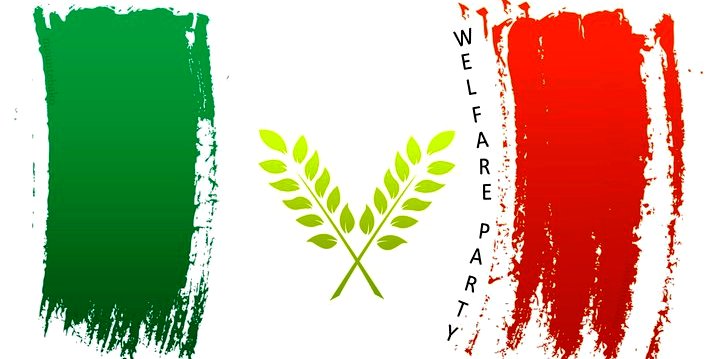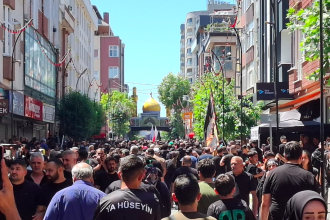Welfare Party of India (WPI) is one of the only two national parties who responded to Law Commission’s May 2013 consultation paper. The Law Commission, which said Congress also responded, lamented the “lukewarm” response of political parties to its consultation paper seeking stakeholders’ views to enable it recommend reforms in the present electoral laws.
BeyondHeadlines attempted to reach Congress and WPI on this issue. While we received no response from Congress, WPI send us its document containing suggestions and recommendations to the concept paper prepared. Reproduced below is the full text of the document. – Editor
Welfare Party of India accepts that our nation has a sound and strong tradition of democracy and the people are proud of it. At the same time, it has to be admitted that the concept of the democratic values and ethos put forth by the nation builders and freedom fighters, have been eroded and lost its charm and vigour. Free and fair election, true in letters and spirits, will reinforce confidence in the democratic system and set-up of our nation. Electoral reforms must be aimed at purifying the system from all kinds of corrupt practices and vices. Considering these points in mind, the Party submits it suggestions and recommendations to the concept paper prepared. The Party has also given its suggestions and opinions on points other than given in the concept paper.
Decriminalization of Politics and Disqualification of Candidates
(i) Whether the existing provisions (Constitutional or statutory) relating to disqualification to contest elections need to be amended?
Yes
(ii) Whether disqualification should be triggered upon conviction, as it exists today or upon framing of charges by the Court or upon presentation of report by the Investigating Officer under Section 173 of the Code of Criminal Procedure, 1973?
Disqualification should be triggered upon framing of charges by the Court.
(iii) Whether, in addition to the existing scheme of disqualifications, a new statutory provision needs to be inserted for evaluation of fitness of a candidate by an independent body?
Yes. A statutory body has to be set-up which will verify the veracity of the datas and details submitted by the candidates. Reasons for disqualification have to be checked and confirmed by this body.
(iv) If yes, what standards of public life need to be enumerated for the purpose of determining the fitness of a candidate?
The claims made by the candidates while submitting nomination have to be verified. The candidate should be a law abiding person, not to be a defaulter in submission and remittance of statutory obligations to the government/ government bodies and are known and interested in social and public activism areas and fields.
3.2 Need to strengthen the provisions relating to the period of disqualification
(i) Whether the existing provisions relating to disqualification need to be amended?
Yes, the provisions have to be strictly and stringently applied and enforced.
(ii) Whether certain offences, so far not included, ought to be included in law for the purpose of disqualification?
Those who indulge in “white collar crimes” generally walk scot-free. This has to be ended. Violation of model code of conducts has to be seriously viewed and treated as violation of law. Obedience to the model code of conduct has to be made a law.
(iii) In what manner the procedure for implementing the provisions relating to disqualification be strengthened?
There should be a time frame for dissolution of such cases related to disqualification. Also there should be an independent body with judicial powers to deal with such cases.
3.3 State funding of election expenses and regulation of conduct of Political Parties
(i) Whether there should at all be State funding of elections of a candidate or political party?
Yes
(ii) If yes, what should be the criteria and quantum of funding?
Publicity modes owned by the state to be made available by giving opportunity and access to the candidates. Expenses of other publicity also to be met within the limit to be finalized and decided.
(iii) In what form should such funding and its accountability be provided for?
A healthy and strong democracy can be built by free and fair election. Any expense in this regard is a nation building expenditure. Hence a corpus fund must be raised by tax and cess. Access to state owned media such as TV and Radio, cost of printed publicity materials, (amount admissible for a candidate to be transferred to the bank account of the candidate. Corporates and big financial houses can contribute to this corpus fund, not to political parties. (Using of other materials will be an offence inviting disqualification),
3.4 Donation
(i) Whether the existing provisions with regard to voluntary donations to political parties need to be amended?
Yes, Corporate funding to political parties to be totally curtailed.
(ii) If yes, what mechanism should be developed to ensure accuracy and transparency in the process of giving and taking of donations?
Sources of income of political parties to be made transparent, Audited financial statements of political parties to be submitted to the Election Commission and an independent judicial body must check it as like the CAG. All donations above Rs 10000/ by an individual to be through checque only.
3.5 False Affidavits
(i) Whether filing of a false affidavit under Section 125A of the Act should be a ground for disqualification?
Yes
(ii) If yes, what mode and mechanism needs to be provided for adjudication on the veracity of the affidavit?
It has to be ascertained by the independent body that we referred earlier whether the mistake was accidental or intentional. If it is found to be intentional and to hide facts and cheat the state and the people, then he/she has to be disqualified. But if it is unintentional and accidental, then he/she must be given a chance for clarification and correction.
3.6 Electronic and Print Media
(i) How can the integrity of election be protected from being affected by the impact of ‘paid news’?
Generally, it is difficult to distinguish between news and ‘paid news.”So there should be a competent authority to monitor and measure where “paid news’ comes.
(ii) What measures need to be taken within the constitutional framework of free speech, where print or electronic media owned or controlled by political parties, candidates or vested interests, directly or indirectly, broadcast prejudiced news in such a manner so as to influence free and fair elections?
There should be a competent authority to keenly watch and monitor, mixing news with “paid.” Ban should be imposed on pre-poll surveys as they are “made” like ‘paid” meant to twist and tilt the mind of voters.
(iii) Whether any restriction on governmental advertisements highlighting its achievements for a period of six months prior to the date of expiry of the term of the House should be imposed?
Yes. The restriction should come from a period of one year prior to the date of expiry.
(iv) Whether violation of such restrictions or prohibitions be made punishable?
Yes, surely.
3.7 Enhancement of punishment for electoral offences
(i) Whether the existing scheme of electoral offences and the punishments needs to be reviewed?
Yes
(ii) If yes, what changes seem appropriate?
The Election Commission of India has to be made more powerful. It should be empowered to levy penalty in monetary terms and an independent statutory body with judicial powers to be set up to deal election offences and pronounce disqualification decisions.
3.8 Adjudication of Election Disputes
(i) Whether the existing scheme of adjudication of election disputes deserves a fresh examination including timely disposal of such cases?
Yes, there should be a time frame and limit. Also the accused should not be permitted to hold/ occupy any office till the decision comes.
(iii) If yes, what kind of new arrangement should be made for speedy disposal of election disputes?
Special courts to be set-up
3.9 Other issues
(i) Whether law should be amended to provide that a person shall not contest from more than one constituency at a time?
Yes. He/she can contest election from more than one constituency, provided that the expenses for election for the first one and for the bye-election caused by his resignation might have to be met by him/her.
(ii) Whether the official limit of the expenditure incurred on campaigning during the period of election needs to be reviewed, in light of increase in the cost/price index?
No. There should be state funding and then there is no need for enhancement or increasing the limit.
(iii) Whether furnishing of incomplete, false or inaccurate particulars of election expenses should be a ground for disqualification?
Yes. There should be chance for explanation within a stipulated time.
4. Besides, the issues raised in this consultation paper, suggestions are invited from all stakeholders on any other issue which may be considered relevant to the subject of electoral reforms.
The Welfare Party of India seriously submits following suggestions and recommendations on issues not touched in the concept paper, but is crucial and important aimed at electoral reforms.
a) We come across reports of seizure of huge sums of money from candidates, their agents or political leaders and even ministers. The money is meant to be used to bribe the voters. Such cases are not seriously followed and investigated at later stage. Once election fever is over, the fervor is also over. This should not happen. Raids during election time to unearth illegal and black money to be intensified and the real hands behind the money to be brought before law.
b) There should be the right to reject. The present electoral system doesn’t give full freedom of choice of candidates; rather it compels to choose from the ones, though they may not suit to the taste and tune of a voter. If a voter finds none among the candidates to be voted, then he should have the right to veto and reject. If more than 50% of the voters of a constituency reject all the candidates before them, then reelection should be held in that constituency.
c) There should also be the right to recall the members elected to legislative assemblies or parliament if they fail to perform to the required standards and levels. We have many members in the august legislative bodies with little attendance in the sessions or the subject committee sittings, rare participation in discussions and debates, under utilization of funds available to the members that are meant for the overall development of their constituency. There should be an authentic impartial mechanism or system to monitor and measure the performance of the members. There should be a time frame for decision taking , say one year after his/her election. All the members coming under the category of “poor performers” will have to forfeit their membership.
ALL THE ABOVE POINTS HAVE BEEN PUT FORTH TO STRENGTHEN THEN EFFORT FOR A FREE AND FAIR ELECTION SYSTEM.
THE FOLLOWING IS SUGGESTION FOR AN ALTERNATIVE SYSTEM.
We have to change the system and introduce the Proportional Representation system of election. Many of the evils of the present electoral system and practices can be wiped out, eradicated or minimized. Use of money power and muscle power to scuttle people’s power can be seen off. Its details will have to be discussed in detail and the micro points decided. It will change the style and approach of political parties. It will help the entry of competent personalities to the legislative bodies. Every vote will have its weight and value and will not be wasted. This system is nearer to democracy.









